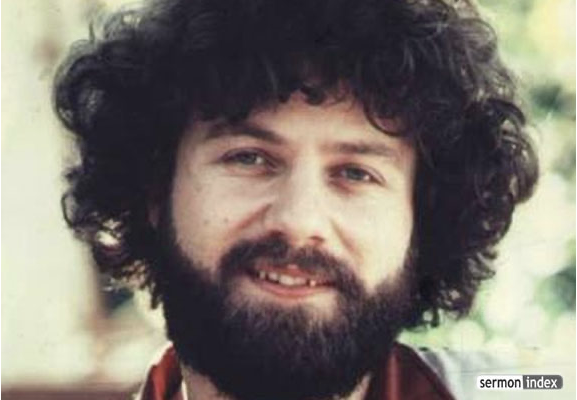I am an American.
For the past eight years, I have pastored in Canada.
But I was born in Arizona and raised in the Midwest. I was a founding member of a Chicago church plant. I spent six years pastoring in Wheaton, IL and five years pastoring in East Texas. I married a girl from San Diego. We adopted two children from Houston and gave birth to our other three in the US of A. I am an American.
Prior to moving here, I viewed Canada primarily as a harbinger of where Left-leaning politicians wanted to take America. It was a useful petri dish, serving up warnings of pending danger.
After living here eight years, I can say that in many ways my old “use” of Canada was appropriate. Canada has gone much further down the secular path on issues like abortion, homosexuality, euthanasia, and male/female complementarity. As such, we do serve as a warning sign.
It is increasingly difficult for Canadian physicians and lawyers to even practice if they hold to traditional Judeo-Christian values. Christian universities can’t offer certain degrees because of their beliefs. And it is hard to find any mainstream federal candidate that opposes abortion. American Christians are right to look to Canada and take warning.
But after living here eight years, there is another dynamic I see.
Another Dynamic
Imagine you are walking a tight rope, both arms outstretched to help you maintain balance. You need both arms, but oddly one of those arms has a 50 lb weight attached to it. As a result, finding your balance is tricky. That’s what it’s like to be a Canadian pastor. And American Evangelicals are that 50 lb weight.
Let me explain. The Canadian Evangelical community is fledgling even while robust. We are under-sourced and under-funded. We have no metaphorical mega-watt radio signal that broadcasts and amplifies across Canada. We have no big conferences, no robust but distinctly Canadian parachurch movements, and little in terms of magnetic/destination seminaries. Even our denominations are small.
I’ll admit there’s something beautiful about this. There’s something pure about Canadian air that’s mostly free from celebrity and powerhouse institutions. But there are challenges.
Challenges
For one, our geographical spread intensifies the lack of cohesion. A population the size of California is scattered across a landmass larger than the entire United States. And the number of evangelicals in Canada is barely more than the evangelicals in Tennessee alone. It’s like building a puzzle when the pieces are spread throughout the whole house.
This makes working together and communicating together a challenge. In Canada, we talk about how it’s actually easier to communicate “North-South” than it is to communicate “East-West.” But these challenges must be overcome if the Canadian church is going to hold the biblical line while reaching Canada with the gospel.
American Evangelical Media
Meanwhile, the American Evangelical media behemoth comes upon a Canadian pastor or story that serves American interests well. And the volume on that one pastor or story gets turned up, which is helpful for the United States. But when our neighbour’s music is turned up to normal for them, it’s extremely loud for us.
It’s like having a guitar which only has one string connected to the soundboard. Even though all the strings get plucked, the sound ends up distorted. It’s like crossing a tightrope with a large weight attached to one of your arms. It throws off the balance. The way American Christians use Canada often makes our work here that much harder.
The way American Christians use Canada often makes our work here that much harder.
Perhaps I could explain this dynamic with a hypothetical scenario. Suppose a law passes in Canada that labels certain kinds of preaching as “hate speech” and thus illegal. Virtually all Canadian evangelical churches are appalled and oppose the new law. These churches and their leaders begin coordinating their collective response. Given our limitations (and our temperament), the response is slow-developing and careful. It’s also shaped by our understanding of the unique culture and government of Canada.
Meanwhile, there’s a pastor with a history of divisiveness that has hurt our fragile cooperation – we’ll call him Billy. Billy mocks our Canadian commitment to process, calling his fellow pastors cowards. He conducts an outdoor service, invites the press, and preaches a jarringly candid sermon that defies the law. As a result, he’s arrested on the spot (a terrible outcome, we’d agree).
This is just the kind of story that is useful to Americans.
So the American Evangelical bullhorn starts blaring his story. Billy becomes a quasi-celebrity in the States. His voice and perspective is amplified. Suddenly, pastors all across Canada – already struggling to navigate their way through a horrible situation – are forced to answer questions from their own congregants about why they aren’t taking the approach Billy has taken.
Though the story originated in Canada, we’re now responding to talking points birthed on American soil that only imperfectly correspond to our Canadian environment.
Billy’s perspective rockets up the charts, far eclipsing the stable, trusted voices that have proven their godliness and fidelity through years of faithful work. Billy and his fringe approach do not stay on the fringe. He dominates our miniscule airwaves. He sucks the oxygen from the room. Instead of forging a way forward tailored to our Canadian context, we spend a good deal of our limited resources providing a nuanced assessment of Billy.
Though the story originated in Canada, we’re now responding to talking points birthed on American soil that only imperfectly correspond to our Canadian environment.
While Billy’s situation has galvanized the American church, his new profile and status has hampered the Canadian church. The former may be a good outcome; the latter is not.
My Plea to Americans
So here’s my plea to Americans: be judicious in your coverage of Canadian stories. Before you share that headline or retweet that story, stop and consider the potential impact you’re having on your brothers up North. If you know a Canadian pastor, reach out to him and get his perspective on the situation. In the end, it may be something that would benefit from US amplification. Often times, you’ll conclude it is not.
A simple article like this is unlikely to solve the problem it’s addressing, but I hope it helps those who read it to avoid unwittingly contributing to the problem.
Yours truly,
An American pastoring in Canada
PS To the Canadians who read this article, perhaps nodding in agreement, let’s acknowledge our own contributions to this problem. While we benefit much from “North-South” communication, let’s intentionally strengthen our “East-West” lines. And when “our” stories hit the US spin cycle, let’s not re-import the repackaged goods.
























